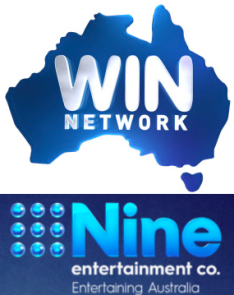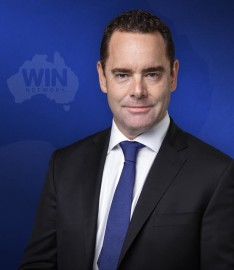WIN loses bid to get 9Now live streaming service banned from its broadcast area
 The NSW Supreme Court has rejected an application by regional broadcaster WIN to block access by its regional customers to Nine Entertainment Co’s live streaming service.
The NSW Supreme Court has rejected an application by regional broadcaster WIN to block access by its regional customers to Nine Entertainment Co’s live streaming service.
Justice David Hammerschlag today ruled that the contract between Nine and WIN did not give the regional media player the rights to online streaming in its geographical area.
“WIN led no evidence of having suffered loss by Nine’s alleged breach,” Justice Hammerschlag wrote in his judgment. “Injunctive relief would visit disproportionate harm on Nine . . . with the consequence that it would have to shut down the service entirely to comply with any injunction.”
WIN launched the legal action action in February, claiming the launch of 9Now in January fundamentally undermined its business case and risked drawing viewers and therefore advertisers away from the regional TV network.
“Win is obviously disappointed with the outcome of the case,” said Andrew Lancaster, CEO of WIN.

Lancaster: “This case further highlights the absolute absurdity of the media laws”
“This case further highlights the absolute absurdity of the 75% audience reach rule in this digital age and the need for the Turnbull government to remove this outdated legislation with a greater sense of urgency.
“The case should also serve to remind regional broadcasters entering into future affiliation agreements that the value of these agreements is decreasing as metro broadcasters set out to erode regional broadcaster value by directly competing with its affiliates for viewers and revenue in regional Australia.
A spokeswoman from Nine responded to the case by saying: “We are pleased with the result. It is a vindication of our position.”
Related content:
- WIN and Nine’s live streaming standoff: are they heading for divorce?
- ‘The great geoblock of Wollongong’: Bruce Gordon tells Nine to turn off live streaming, but to what end?
Much of the legal case centred on the meaning of the word “broadcast” with Nine citing the ministerial decision in 2000 that established that internet streaming was not a form of broadcast, whereas WIN argued that for its exclusive broadcast rights to have any commercial value it must exclude another party from providing identical content via internet streaming.
“The constructional choice is a simple one,” wrote Justice Hammerschlag. “The evidence does establish that Nine had rejected WIN’s wider definition of the term on 30 November 2007, and WIN had apparently accepted the narrower definition on 16 October 2008.”
Justice Hammerschlag when on to say that he did not believe the 2000 Ministerial decision was relevant here, writing: “Bespoke definitions of ‘broadcast’ in various legislative enactments are not of assistance in the construction of the particular instrument under consideration here.
“My conclusion that ‘broadcast’ means free-to-air disposes of the necessity to consider WIN’s ultimate preferred construction of clause . . . However, I consider it commercially highly unlikely that the parties would have intended to achieve such a result by the use of and through the words which they chose.
“The only exclusivity Nine was giving was broadcasting on the WIN stations in the WIN licence areas.”
In a hearing earlier this month, Justice Hammerschlag showed his thinking by questioning the merits of the WIN argument, asking: “Is it not, rather, broadcasting in the sense of the (Broadcasting Services) Act and then a new method arose and it turned out to be a plague on you?
“Clearly you are not happy with it, and I can fully understand that… but if the parties had even contemplated it, it would be covered for gratis (in the contract).”
WIN barrister Tony Bannon SC responded that the agreement covered all aspects of broadcast within WIN’s geographical licence areas: “What is reflected is that it is new technology. To educate advertisers will take time.
“It is essential that we stop them internet streaming into our area… the programming with their ads is contrary to the commercial agreement. We need their content in order for us to make money.
“Nine was selling WIN the right to sell its programming and achieve advertising revenue from it.”
Nine also argued in one of its affidavits that during the most recent round of negotiations in December 2015 WIN CEO Andrew Lancaster sought change to the Program Supply Agreement in a way that would have then given WIN the right to live-streaming in their areas.
“There has been discussions about whether WIN might gain access to a broader set of rights,” said Noel Hutley SC. “My client rejected that and this was accepted by them.
“What happened from here is that WIN has never put forward an agreement for anything other than the free-to-air rights. There has been one subject (only) – the free-to-air rights.”
A decision on costs will be made at a later stage.
Nic Christensen




Common sense has prevailed.
User ID not verified.
Good. The attempt to set up a firewall around Wollongong has failed. Glad to hear that freedom of choice in the global village has prevailed.
User ID not verified.
There is so much more to this than meets the eye.
User ID not verified.
Reading the judgment, what gets me is the way the two companies were comfortable operating million dollar deals for years just on short form agreements. I don’t know if this is common in business but this case and the ambiguities arising from the short form agreement show that it can end in (expensive) tears.
User ID not verified.
So why couldn’t the decision include a geo block for regional areas?
I am sure NEC would complain if Netflix was streaming into AU with its USA library…. oh.. they did!
Sounds like someone at NEC had a strong word with the courts to ensure they got what they wanted regardless of WIN’s request.
User ID not verified.
Why don’t WIN also stream their signal? And incentivise people in their broadcast area to stick with them?
User ID not verified.